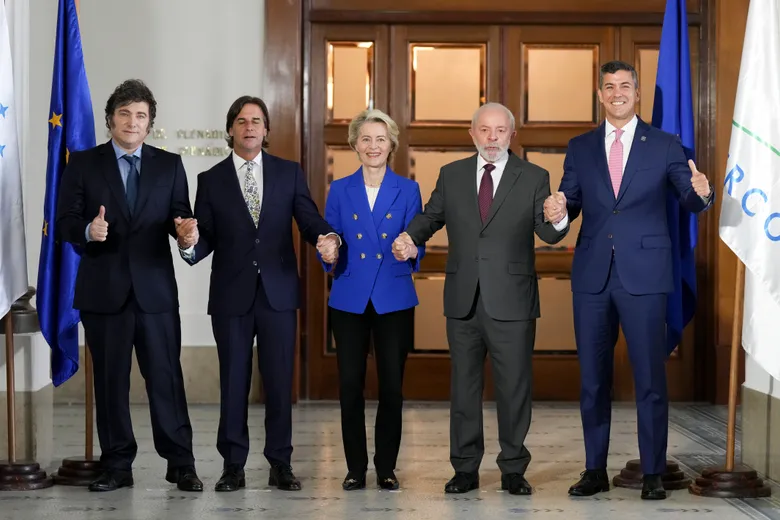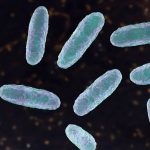The European Union has finalized a landmark free trade agreement with Brazil, Argentina, and three other South American nations within the Mercosur trade alliance, concluding a lengthy 25-year negotiation process.
The deal, if ratified, will establish one of the world’s largest free trade zones, encompassing a market of 780 million people and representing nearly a quarter of the global GDP. Proponents of the agreement claim it could save businesses approximately $4.26 billion annually in duties by reducing tariffs on products such as Italian wine, Argentine beef, Brazilian oranges, and German cars.
However, the deal has faced staunch opposition, particularly from France and the Netherlands, where officials worry it may disadvantage local farmers and cause environmental harm.
European Commission President Ursula von der Leyen hailed the agreement as a “truly historic milestone” during the Mercosur summit in Uruguay, noting the rise of global protectionism. “Strong winds are blowing towards isolation and fragmentation, but this agreement is our clear response,” she said, indirectly referencing U.S. President-elect Donald Trump’s protectionist rhetoric.
Despite the optimism surrounding the agreement, French President Emmanuel Macron described the deal as “unacceptable” and emphasized the need for further safeguards for farmers. His office stated that the agreement has not been signed or ratified and that the final outcome of negotiations remains uncertain.
Macron faces challenges in blocking the deal, as he would need support from at least three other EU member states representing 35% of the bloc’s population. French officials have named Austria, Belgium, Italy, the Netherlands, and Poland as other countries expressing reservations about the agreement.
To take effect, the pact must also be endorsed by the European Parliament. In her remarks aimed at skeptics, von der Leyen assured that the agreement would benefit around 60,000 businesses through reduced tariffs, simplified customs processes, and greater access to raw materials otherwise supplied by China.
Acknowledging concerns from European farmers regarding a potential influx of inexpensive food imports, von der Leyen stated, “We have heard you and are addressing your concerns.”
Public protests against environmental regulations, rising costs, and unregulated imports have intensified across the continent over the past year.
Leaders on both sides of the Atlantic applauded the announcement, seeing it as a boon for export markets. This agreement marks Mercosur’s first significant trade deal, which includes Argentina, Brazil, Uruguay, Paraguay, and recently Bolivia, and was primarily aimed at expanding trade relationships that had previously only yielded agreements with Egypt, Israel, and Singapore.
German Chancellor Olaf Scholz noted that “an important obstacle to the agreement has been overcome,” referencing the potential benefits for Germany’s automotive industry. Meanwhile, Spanish Prime Minister Pedro Sánchez described the pact as “an unprecedented economic bridge.”
Brazilian President Luiz Inacio Lula da Silva praised the deal, emphasizing its potential to secure new markets and enhance investment flows for South America. The Brazilian Trade and Investment Promotion Agency anticipates that the agreement could increase the nation’s exports to Europe by $7 billion.
The long and complex negotiations have spanned 25 years, initially stemming from a Mercosur summit in Rio de Janeiro in 1999. Efforts have stalled due to differing economic priorities, regulatory standards, and agricultural policies, compounded by rising protectionist sentiments.
After momentum regained in 2016 when former President Trump imposed tariffs on Europe, pro-business governments emerged in Brazil and Argentina, paving the way for renewed negotiations. While a provisional deal was announced in June 2019, it never went into effect, primarily due to concerns over environmental standards and a lack of commitment from the South American governments.
Now, with recent political shifts in the region, including President Lula’s commitment to curtail illegal logging in the Amazon and new economic strategies from Argentina’s President Javier Milei, hopes for the agreement’s ratification are renewed.
However, considering past EU trade agreements, the ratification process could still take years. Milei acknowledged the challenges ahead, stating, “We celebrate it, but it’s still far from reality,” citing the slow progress he experienced with previous agreements.
As negotiations and discussions continue, the global trade community remains attentive to how this significant agreement will develop and its implications for future international trade relations.
Credit: CNN




